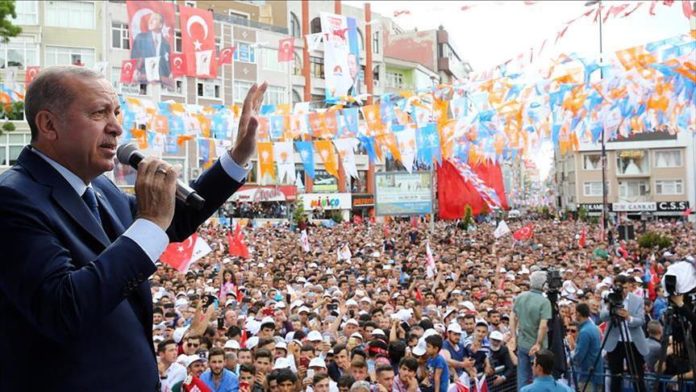Late on May 6, Turkey’s election board invalidated the results of a March mayoral election that cost President Recep Tayyip Erdogan’s AK Party control of Istanbul. The decision sent stocks tumbing, and the opposition party called the move a coup.
Erdogan has been consolidating power for the better part of the past decade. In 2017 a constitutional referendum granted him authority to appoint ministers and judges and put much of the country’s economic policy at his discretion. Last year, the day after he was sworn in to a second term, he named his son in law finance minister.
The city is the country’s largest metropolis and its commercial center—more important, it’s where Erdogan got his political start. AKP has built an important patronage network there, doling out contracts for infrastructure projects to Erdogan supporters. The president told lawmakers in 2016: “If we lose Istanbul, we lose Turkey.”
New elections have been scheduled for June 23. Some in the main opposition party, CHP, which won narrowly in the original vote, called for a boycott, saying Erdogan’s party can’t be trusted to run a free and fair ballot. But CHP’s leadership says it will campaign again for the post, and smaller parties are aligning with them.
Six weeks of political chaos present a major threat to Turkey’s economy, which slipped into its first recession in a decade just before the March vote. The lira hit a seven-month low after the election board announced its decision, while Turkish stocks erased their 2019 gains at the next morning’s market open. The central bank is likely to face pressure to stabilize the currency by raising interest rates—a move sure to anger Erdogan, who’s consistently called for keeping borrowing costs low.
Pretty bad. The lira has experienced a series of shocks in the past year and may face more if Turkey accepts a $2 billion delivery of Russian missiles. That could provoke U.S. sanctions, on top of steel tariffs put in place last year.



















